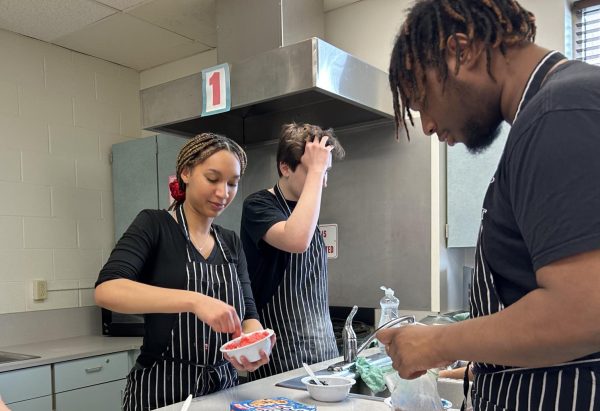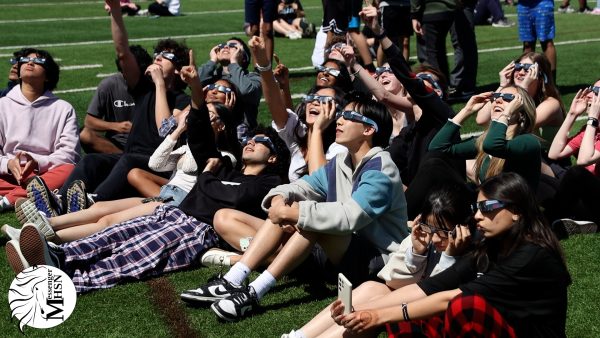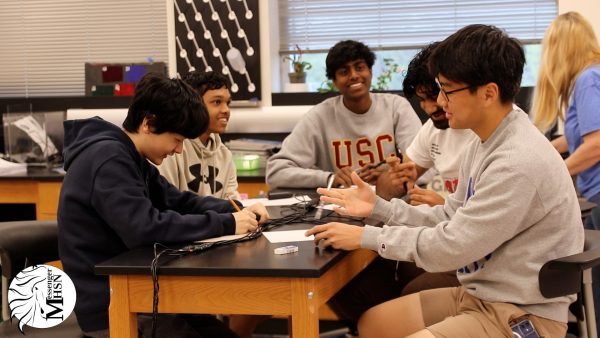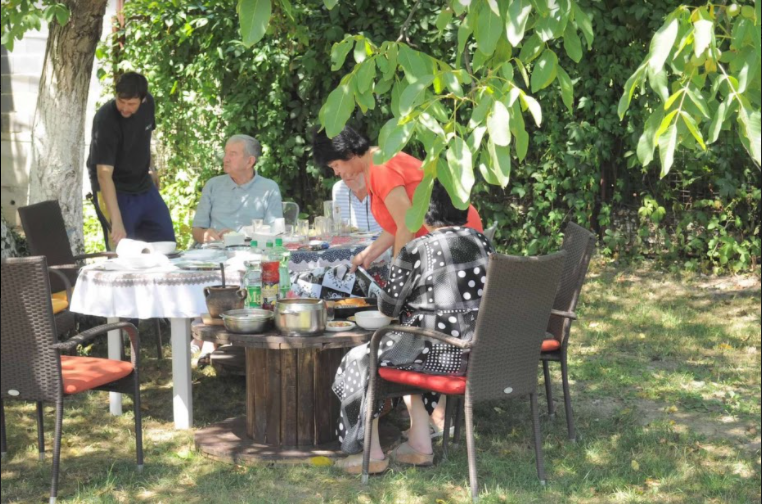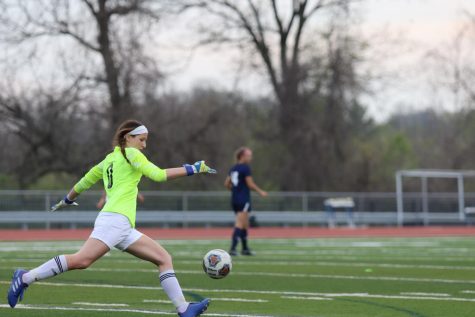Bilingual Students Highlight Their Experiences Taking a Foreign Language
Media by Selma Hotich
Selma Hotich, junior, and her family gather in Bosnia for lunch.
At MHS, four different foreign languages are offered for students to take. However, the languages of French, Spanish, German and Latin are not the only languages spoken by students.
Renee Kruchowska, junior, is fluent in Polish. She was born in the United States to immigrants from Rybnik, Poland. Kruchowska said that though she was born in the U.S., Polish is still her first language.
“My parents taught me Polish before English because they knew I would learn English in Kindergarten,” Kruchowska said. “Being surrounded by so many English speakers, it was impossible not to learn the language.”
Kruchowska said that learning Polish before English contributed to her struggles in elementary school Language Arts. However, through immersing herself within the language, she was able to catch on.
She elected to take French her freshman and sophomore years to satisfy the credits needed for most colleges.
“Taking French had its difficulties but was also much easier,” Kruchowska said. “Since I am bilingual, I have almost this innate sense of grasping languages much quicker.”
Kruchowska said one of most difficult parts was alternating between the three languages, using the correct grammar and patterns. However, she does credit her teacher, Emily Thompson, for making it much easier in the areas she struggled with.
Students need to be exposed to the language on a daily basis. It is difficult for students to succeed at something when they do not have intrinsic motivation to do so.
— Emily Thompson, French teacher
“For the ways I didn’t like learning, Mme Thompson made it enjoyable,” she said. “She would pour her heart into her teaching and that really did help myself and others think they can grow their French skills.”
Emily Thompson, Kruchowska’s teacher, regards language learning as an important part of life and said the U.S. lacks an emphasis on language study.
“Students need to be exposed to the language on a daily basis,” Thompson said. “However, our society does not see value foreign language acquisition like others around the world do. It is difficult for students to succeed at something when they do not have intrinsic motivation to do so.”
The motivation is more often found in bilingual students. Thompson said her bilingual students know they can learn French. Their brain, she said, figures out how to categorize different languages and it ultimately becomes easier to learn more.
In class, Thompson only uses authentic resources as opposed to having a textbook. She said this helps students to make deeper connections with the language and culture. She also attempts to emulate a real language immersion as much as possible within her classroom.
“When I started out, I was in eighth grade doing similar things these students are doing,” she said. “I took every class that was offered during my time in high school (to AP French) and continued through college. Though I will say that, despite learning the language for many years, the times when I learned the most were during my study abroad experiences. Living in the culture, with full immersion, is the best way to succeed.
Selma Hotich, junior, comes from a Bosnian and Herzegovinian family. Though her mother never taught her the language, she still developed fluent listening skills and moderate speaking abilities.
Hotich chose to take Spanish her freshman and sophomore years of high school.
“It took a while to learn Spanish at MHS, but, when I started to realize the comparison in structure to Bosnian, my Spanish drastically improved,” Hotich said. “Everyday I would watch conversations play out in my own kitchen. Then, years later, when I’m taking an introductory Spanish class, I saw great strides.”
Hotich said more students would benefit from the foreign language program if they veered away from the memorization of words and focused more on comprehension. However, she does think taking a language in high school is definitely a beneficial route to take.
“I think it is effective for sure,” she said. “I’ve seen my peers prosper from learning through MHS’ teaching techniques, but I also think there’s definitely room to grow and develop more efficient teaching to benefit the students. I definitely foresee growth as we continue to globalize and create the future of foreign language learning.”
Your donation will support the student journalists of Marquette High School. Your contribution will allow us to purchase equipment and cover our annual website hosting costs. You may become a PATRON by making a donation at one of these levels: White/$30, Green/$50, Blue/$100. Patron names will be published in the print newsmagazine, on the website and once per quarter on our social media accounts.

Carter Van Buskirk (he/him), senior, is a staff reporter for the Messenger. Carter plays varsity soccer for MHS. He is a board member for the sophomore...




